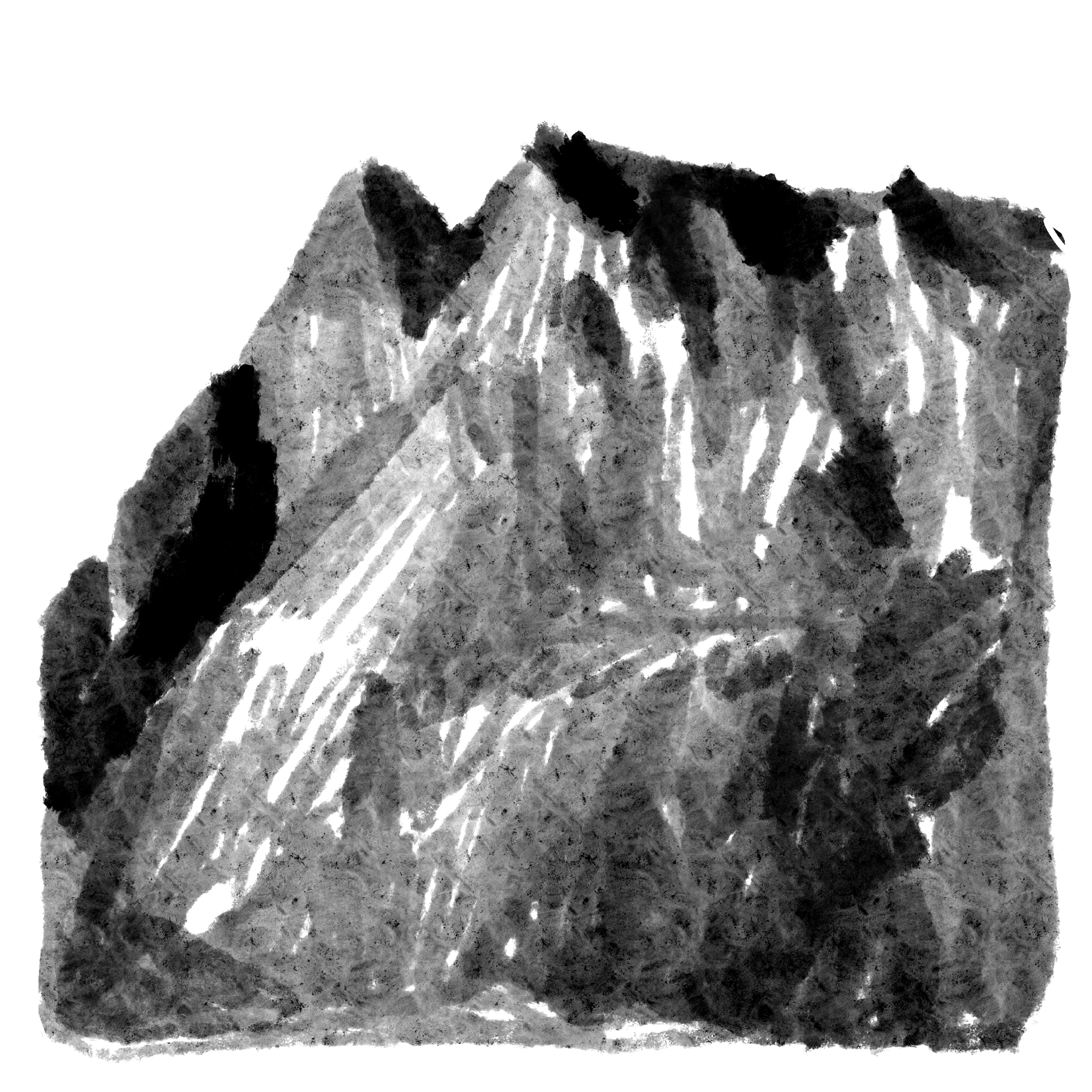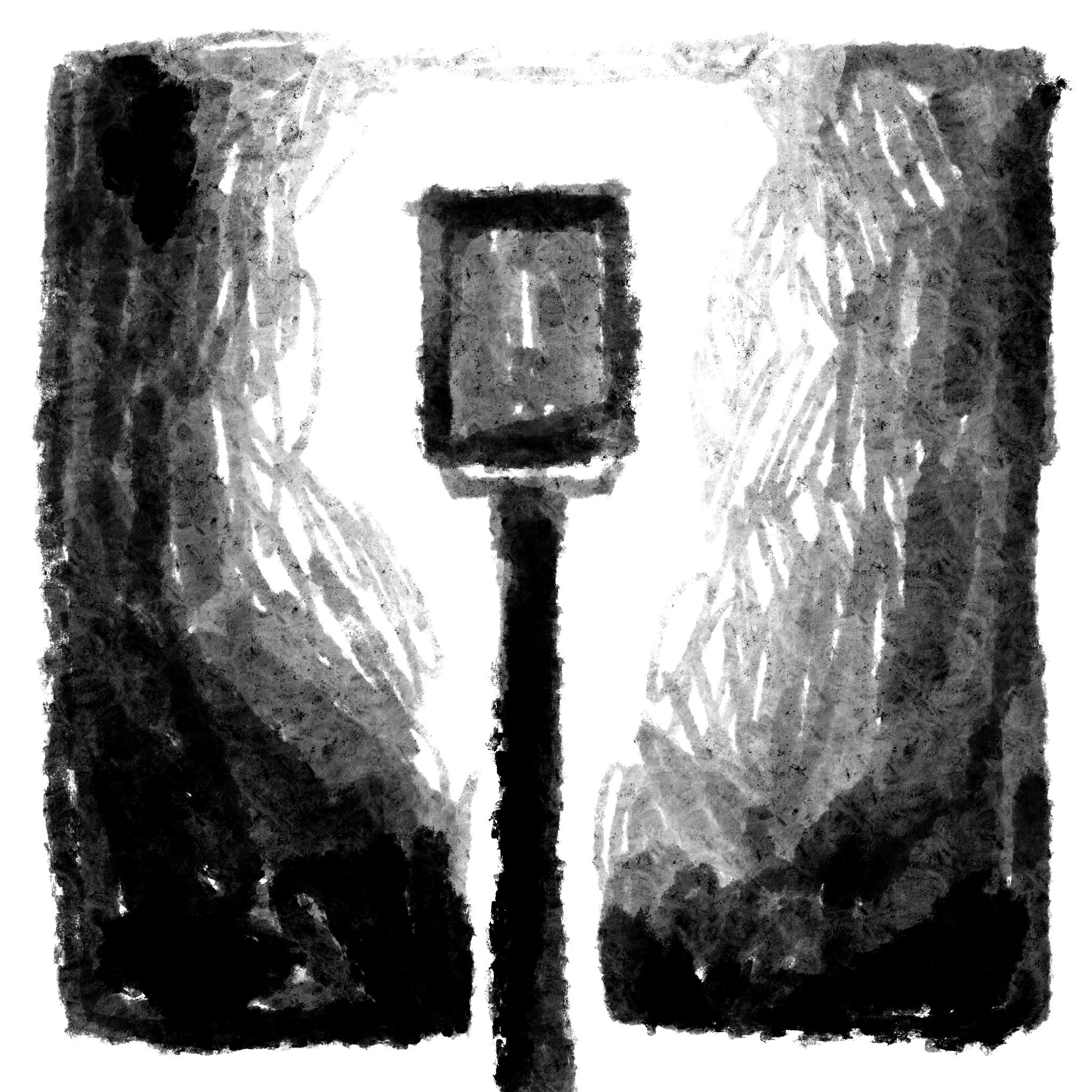This is an autobiographical story about the origin of the phrase “Give Every Gift” in my mind and my life. It is based on a transcript of a private talk I gave in Spring 2022.
I did a lot of meditation retreat practice in the first half of 2020. I did a ten day online retreat with a teacher that I liked, and then I went to Vermont and went in a cabin for what ended up being a hundred days at the beginning of the pandemic. As you can imagine, that was an interesting time to sit a long retreat. When I came out in early May, the world was different.
Then I had the great opportunity to do even more practice, even after the ten days and the hundred days. I took a few days off of the monastic schedule to sit for two or three days alone in a room in the building there and keep working on my practice. Then I got to sit a group retreat for a week with the group there.
After being in solitary retreat for so long, it was such a gift to sit with a group. I had taken that support for granted on the many retreats I had sat before then: having a schedule, specific times to sit, bells ringing for the beginning and ending of meditation practice periods, and above all, people to sit with.
At the end of that weeklong group retreat, my teacher saw that I was, as you might say, cooking. Things were going well in the practice. There was a kind of momentum from that much practice that was taking off in a good way. It wasn’t according to plan, but he suggested, “Why don’t you go back in the cabin?” I had already done more than a hundred days. Why not do some more practice?
That thought terrified me. Before my long retreat, the longest retreat I’d sat was 18 days. And the long retreats I’d sat had been extremely difficult for me.
I think doing a long retreat or monastic training is a little bit like how it must be to have done military service. Some countries have mandatory military service. Everyone that’s a man in that country of a certain age just has to go into the military. People in that country know what it’s like to be in the military, and they can talk to each other about it.
I haven’t done military service, but if you have, you know what it’s like. Similarly, if you’ve sat a long retreat like this, you know what a hundred days or more of retreat might mean to someone. What it might be like to face the possibility of going back in, especially if it was a difficult experience on the whole.
If it was bliss and just constant samadhi and liberation or whatever, sure, that’d be one thing, but at the time that was… not my experience.
Anyway, I decided to go back in. I ended up doing another seventeen days or so of retreat, for a total of something like 134 days of retreat practice in the first half of 2020. This short seventeen day retreat is the one that I want to tell you about.
The long retreat I’d sat had been in winter, in Vermont. But this shorter retreat was in springtime.
I realized in retrospect that sitting a retreat in winter was a gift, because I did not feel like doing anything besides practice because it was so cold. But in spring, with the trees and the birds and the flowers and the fresh air and the trails, all I wanted to do was get out and hike and explore. It was hard to sit down and practice, even though that was what I was there to do.

To make it even harder, my teacher was gone for most of that time. He wanted me to keep working on some very specific things in my practice, but he wasn’t there to help me with it. He wasn’t there to reflect what was or wasn’t happening in a way that I’d really leaned on at the time.
When he came back from his travels, there was about three or four days of this retreat left for me, and he gave me a stern talking to.
My teacher always did this dance of being as stern as he possibly could with me, and no sterner. He will be as stern as is… prudent. He will push you as much as is actually helpful and no more.
In my case, that was often not very stern. But at that time, he gave me what felt like a stern talking to for me at the time—which, of course, was not actually that stern.
He was stern with me because my practice had momentum and I was making real progress in a good way. I’d seen some things about letting go and he wanted me to keep letting go. That was my assignment at the time: just keep letting go.
I was like, how do I do that? I had done it once. How do I do it again? I didn’t know how.
Keep doing it. That was my assignment. Let go. And there were three or four days left, which did not feel like very much after having had the privilege of doing more than a hundred days.
Three or four days didn’t feel like very much time compared to the hundred days that I’d had previously.
During a lot of the longer retreat, I’d had difficulty going to see him. I would avoid going to see him, so I wouldn’t have those one-on-one meetings with my teacher. I was scared and didn’t have much to report and that led to vicious feedback loops with my practice.
So in those last three or four days of my retreat, my teacher very helpfully required me to go to the one-on-one interviews, twice a day, in the morning and evening. I just had to go.
In this kind of a setting, you start to get a rhythm. Within twelve hours you have to make an internal shift. You have to make significant progress in your practice, such that by the next time you see your teacher, you have something to show them.
Not only to report and talk about, but to show them—to demonstrate.
Then you have another twelve hours until the next morning or the next evening, and you somehow have to have done it again.
That can get quite quick, can become very fast. Feedback loops become possible, where you can make tremendous progress in a short time. I started to get a taste of that because he required me to go to those interviews with.
It was three or four days, two meetings a day. So that was six, seven, or eight meetings where I had roughly twelve hour time blocks to make a shift.
As you can imagine, that was hard for me—excruciating, even. I was pulling my hair out.
But somehow, I made more effort in those days than I had in the previous hundred days that I was in the cabin. Somehow, with the time pressure, and my teacher pushing me, and my own internal shifts and practice, I found a way to actually make what you might call heroic effort.
Even then, with good things happen, it still wasn’t quite it—it still wasn’t what my teacher was looking for.
And there was twelve or so hours and one meeting left. It was night and I had until the morning and then that retreat was gonna be over. And that would be it—there wouldn’t be retreat for me for the foreseeable future. I don’t think I ended up sitting another retreat for maybe six or seven months after that, which was a long time for me at the time, because I had been in a rhythm of sitting at least one retreat a month before that.
Something that had been abundant—retreat time—was suddenly very precious, very rare. There was not much time left.
So those last twelve hours, I stayed up all night. This was something I’d historically found very hard to do, and had a lot of resistance to doing. But somehow, under the circumstances, I did it anyway.
The assignment was so simple: it was just to let go. So every moment, whatever was coming up, I let go of it to the best of my ability. I made that the basis of my practice for those last twelve hours.
I don’t really know how to describe to you what the quality of those twelve hours was like. It was very ordinary. It was late at night and I sat into the morning. I was very tired. Being tired is totally ordinary externally. I didn’t see any bright lights or have visions of God or what have you.

It wasn’t any of the things you hear about, or hope for. This is not the “Tasshin gets deeply enlightened” story. Sorry. This is not that story. If you’re looking for that, I can’t tell you that story actually. But even though it was very ordinary, it was also very extraordinary.
The thing is, if you bring that kind of effort into a perfectly ordinary night like that one, your experience of what a moment is changes. It opens up.
Normally, a day, a week, a month, a year passes and we don’t make anything of it. But those moments meant everything to me. A thought came up, and I’d let go of it. A feeling came up, and I’d let go of it. I’d just try, you know.
I’d made so much of a big deal about how to actually let go, but it was so simple. It was just like this: I’d have a thought about whatever, and then I would just focus on something else, like my breath, or feeling my body, or the colors in the room, or a sound. Focusing on anything other than that thought was letting go of it.
Then, another thought would come up. Okay, I’ll focus on my breath. Okay. Another thought would come up. I’ll focus on my breath again. Okay, a feeling came up. Focus on my breath. This was the same old instructions I’d been hearing for years, but that night, I actually did it.
Moment after moment, for hour after hour in that night, my sense of how many moments there were expanded. There were many, many, many, many, many moments. For those twelve hours, I practiced that skill again and again and again.

Even though my circumstances were quite ordinary—darkness and the morning light and fatigue—my phenomenological experience of moments, and the way that I related to them shifted. My sense of time changed, my sense of effort changed, my sense of letting go changed.

That morning, I had my final meeting with my teacher. He could see that I’d made good use of the last twelve hours of that retreat.
It wasn’t stream entry or something. It’s just that good things happened because I made good effort. I let go of some things. Very simple.
We talked about that and how that was good. Then he gave me two pieces of advice that changed my life. In some ways, you could say that these pieces of advice he gave me are the basis of my basis of my life now.
The first piece of advice was: “Make use of every moment of your life.”
I once told this to someone without giving them all of the context I’ve already written here.
To this person, I think it sounded rather trite, like something you might put on a refrigerator magnet: “Make use of every moment of your life.”
That’s a good thing to put on a refrigerator magnet, actually. Probably someone should make one of those refrigerator magnets.
It sounds trite, but in the context of that conversation, and the twelve hours that preceded it, what a moment was and what it meant to make use of the moments of one’s life became very real and very precious to me. I saw that if you apply this kind of effort and make use of your time, then there are many, many moments, and many good things can happen.
I sensed that what a life even is can expand, both in terms of the quantity of moments that you experience, and the fruits that you find from applying effort to those moments.
I saw the value of this advice, but it felt daunting. How could I possibly make this same kind of effort for the rest of my life, when it took me months to learn how to make it for twelve hours? How could I possibly do that?
As daunting as it felt, it also felt invigorating, liberating, hopeful, possible. It felt good, that I might try to do that for the rest of my life, to make use of every moment of my life in the way that I had during that retreat.
Looking back on it now, I think I’d had Wrong View: believing that what I do doesn’t matter, that my time doesn’t matter, that it’s okay if I waste it.
I could see at that time, oh no. Oh no. My time does matter. How I use it does matter, and I can make good use of it, if I realize it that it matters, it’s possible to make good use of time.
The second piece of advice that he gave me had to do with exiting retreat. I’d done quite a bit of retreat that year, so he gave me some advice about how to reenter the world and focus on being in the world.
His first piece of advice had to do with transcendent practice: make use of every moment of your life.
This second piece of advice was more about the world, how to engage with it, how to relate to it, how to be of service. And the advice that he gave me was: “Give gifts now.”
“It’s time to give gifts now,” he said.
He told me that I’d been given a great gift by getting the opportunity to do that much retreat practice, and that it was fitting to focus on giving gifts as I exited that retreat.
I certainly heard both of those piece of advice for what they meant, but somehow, they also blurred together in my mind, such that the phrase “give every gift,” entered my mind.
That summer, I went to teach at the California location of that organization for a few months.
I spent a few months out there, and I made myself a promise that I would give every gift that I had to give during that time. That was my way of practicing my teacher’s advice. I intended to make use of every moment of my life, and I intended to focus on giving gifts. The way I was going to do that was by by giving every gift I possibly could during during time.
That was a feasible thing I could do. I made a list of all of the gifts I could possibly give to the group out there during the time that I had with them.
When I got there, I talked to the group about it and said, “Here’s what I have to offer you. Here’s a list, a list of things I could give you. It’s a really weird list.”
I’ve acquired an eclectic set of skills and pieces of knowledge over the years. I just made them a list and said, “Here’s your menu. What would you like to order?” And they said, “Yes, please.” I don’t think there was anything there that they weren’t interested in learning. It was a list of maybe fifteen or twenty different things, and they were interested in all of it.
So we found ways to do all of it that over those two or three months that I had with them. Some of the things on the list had to do with meditation and Buddhism, and some of them had to do with productivity and fundraising and strategy and all of the things I was interested in. I found different ways to integrate that list into my time there, based on what people were interested in and what was useful and so on.
And at the end of that time, I had done it. I could look back on the list I’d made and say that I’d really done it: I gave every single gift I could possibly give.
After two or three months, I had shared that whole list with them—and it helped them. It was good for them, and I enjoyed it. It felt good for me to give, and it felt good for them to receive.
When I came to the end of that time period, I realized, why not just do this all the time, give every single gift I could possibly give? Every single gift. I could just do that with my life. It had felt so good those past few months. Why not just do that all of the time?
That’s basically been my life since then: giving every gift I can possibly give. If there’s a gift I can give, I will give it.
You know, it’s a weird set of gifts. I make music videos and run metta dance parties and write blog posts and record podcasts. I wrote a bedtime story for someone and recently recorded a little comedy skit.
I give every gift I possibly can. That’s just what I do these days.
As far as I can tell, when you make that the basis of your life, two things happen.
First, you’re given even more gifts. People give you gifts. People help me in all kinds of ways. They support me on Patreon, or buy me meals, or ask if I want to come sit a retreat for a week somewhere. All kinds of things.
And importantly, because you’re given more gifts, you have more to give. That summer, I thought that I’d given everything I possibly could.
But it turned out that because I gave everything I could, I learned more in the process. So then I had even more things to give. It was renewing.
The more gifts I give these days, somehow the same is true: I have more gifts to give the world.
And for myself, I just get happier and happier. It makes me so happy to hit publish on a blog post, or run a metta dance party or whatever it is that I do these days. All kinds of weird things, increasingly varied and weird things. It feels good. It feels really good to give gifts. I just give a lot of gifts, and it feels really good.
You don’t necessarily have to do that with your life, although, you know, I quite like it. If you feel inspired, feel free to do that in your own way. But I would say that the advice that my teacher gave me is good, solid advice, which is give gifts now. Give gifts now.
It can be any kind of gift you want. You can listen to someone, or make a piece of art, or offer to teach some meditation, or run a dance party. Whatever your gift is, you can give that.
May the gifts you give bring you joy, and may they benefit all beings.
The art in this post was created by Sílvia Bastos, and is licensed under a CC BY 2.0 license. You can support her work on Patreon.
